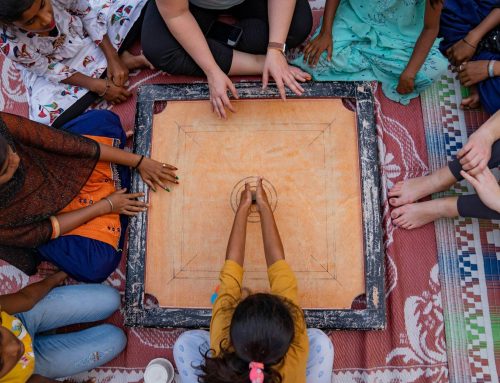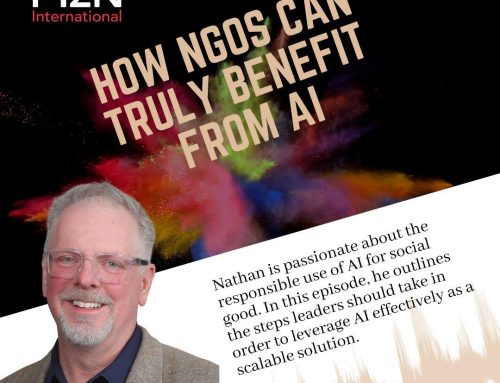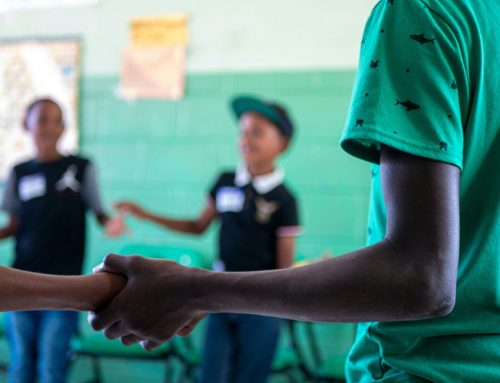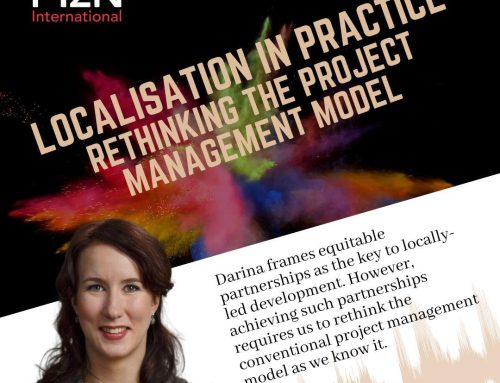A resource for NGOs in the education sector to identify funding streams
Education is a human right. It is one of the most powerful tools in lifting socially excluded children and adults out of poverty and into society. UNESCO data shows that if all adults completed secondary education, globally the number of people living in poverty could be reduced by more than half.
However, the real facts are that as of 2022, 244 million children and young people lack access to education globally. Basic education is facing a significant crisis worldwide, due to economic fragility, political instability, conflict, and natural disasters across the globe. This disproportionately hinders access for children with disabilities, from ethnic minorities and also in many countries limiting access to education for girls. Based on research, 60% of children worldwide struggle to read and understand a simple text by the time they are ten years old. This has only been exacerbated by the COVID-19 pandemic, the largest disruption to education in history.
In 2021, low-income countries (LIC) saw a year-on-year increase in education spending, largely driven by a rise in government funding. However, despite this increase in funding, it has so far failed to adequately address the learning deficit from the pandemic.
It’s vital to push for stronger education systems and a framework guaranteeing equal opportunities for everyone. Fortunately, many MzN Partners are working on just that. Over the past years, we have helped them attract long-term funding through good business development. Here are some of the donor we established funding lines with for our Partners.

1. UNICEF


UNICEF operates daily in some of the world’s most challenging regions, committed to upholding the rights of children and securing their futures. Spanning over 190 countries and territories, UNICEF’s impact is unparalleled, reaching a greater number of children and youth than any other global entity. Amidst the challenges, UNICEF delves into a multitude of educational projects, endeavors, and collaborations, striving to create a world where every child has access to quality education, regardless of their circumstances. Through these concerted efforts, UNICEF seeks to foster transformative change, empowering children to build brighter and more hopeful futures.
For more information about UNICEF please click on the link.
To follow their call for proposals please visit the website.
2. Global Partnership for Education


The Global Partnership for Education (GPE) embodies a visionary education perspective that recognizes the transformative power of quality education in shaping the future of nations. Committed to ensuring that every child receives a quality education, GPE operates as a catalyst for change by mobilizing resources, fostering partnerships, and driving policy reforms. Grounded in the belief that education is a fundamental right, GPE works collaboratively with governments, civil society, and the private sector to strengthen education systems and address the unique challenges faced by diverse communities. With a focus on inclusivity, gender equality, and innovation, the GPE education perspective seeks to empower learners with the skills and knowledge necessary to thrive in a rapidly evolving world. Through its strategic investments and unwavering commitment to sustainable development, GPE stands as a beacon of hope, striving to unlock the full potential of every child and build a brighter, more equitable global future.
For more information about GPE please visit the link.
To follow the calls for proposals and how to apply for grants please visit the website.
3. USAID


USAID’s education programming is driven by the overarching goal of achieving sustained, measurable improvements in learning outcomes and skills development. This comprehensive policy extends across all education levels, from pre-primary to higher education, encompassing diverse contexts, including crisis-affected environments. Rooted in principles like country focus, ownership, and evidence-based decision-making, the policy directs investments towards enhancing learning outcomes, strengthening local institutional capacity, and fostering collaborative partnerships. The ultimate objective is to ensure that all children and youth, particularly the marginalized, have access to education that is safe, relevant, and socially impactful. The USAID policy on Education emphasizes key priorities such as literacy and numeracy development, acquisition of social-emotional skills, and empowering youth for productive lives and employment.
For more information please visit the website.
To access the call for proposals please click on the link.
4. International Development Research Centre (IDRC)


The International Development Research Centre (IDRC) plays a crucial role in advancing global education goals by dedicating efforts to ensure that children and youth from vulnerable populations have access to quality education. Committed to promoting inclusivity, IDRC’s initiatives focus on addressing educational disparities and providing opportunities for marginalized communities. Through research and support, IDRC aims to enhance educational systems, enabling all children, regardless of their socio-economic background, to benefit from high-quality learning experiences. By fostering partnerships and innovative approaches, IDRC contributes to creating a more equitable and accessible educational landscape for the world’s most vulnerable populations.
For more information about IDRC, please visit the website.
To follow the call for proposals please click on the link.
5. AJA Foundation


The AJA Foundation is dedicated to advancing education by providing targeted support to high-achieving students facing financial constraints, limited curriculum options, or inadequate support structures. The foundation’s grantmaking initiatives focus on empowering students who have demonstrated academic excellence but lack the resources needed to fully realize their potential. By partnering with organizations that exhibit proven success, narrow and clearly defined missions, cost-effective solutions, sufficient infrastructure, and accountable management, the foundation ensures that its support is directed toward initiatives and individuals capable of making a meaningful difference.
To know more about the grant please visit the website.
To apply for the grant please visit the link.
6. The OPEC Fund
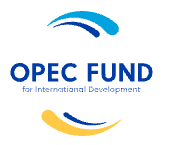

The OPEC Fund for International Development (OFID) serves as a collective aid channel to developing countries. Collaborating with developing country partners and the global donor community, OPEC is dedicated to fostering economic growth and alleviating poverty in disadvantaged regions worldwide. The organization’s grant program, revised in 2021 to align closely with strategic goals, spans key sectors such as Health, Agriculture, Education, Energy, Water & Sanitation, Industry, Transportation, Telecom, and Financial. Eligible activities for grant financing include institutional capacity building, technical assistance, knowledge production, project preparation, and grant components within larger OFID-funded projects. These efforts aim to support sustainable development and address critical challenges in the pursuit of global prosperity.
For additional details and information on the OPEC Fund for International Development (OFID) grant, please visit the official website.
7. Leopold Bachmann Foundation


The Leopold Bachmann Foundation is dedicated to supporting infrastructural project initiatives aimed at enhancing local livelihood conditions in both rural and urban areas of the Global South. The foundation is committed to fostering resource-saving development by ensuring that adolescents and young adults acquire pertinent knowledge and skills, contributing to community growth. Additionally, the foundation focuses on providing access to quality education for youth from marginalized communities at secondary and tertiary levels, while also facilitating entry into the labour market through vocational training and entrepreneurial approaches. The promotion of independent and self-determined learning, coupled with efforts to encourage social development, underscores the foundation’s comprehensive approach to uplifting individuals and communities in the Global South.
To know more about the Foundation please visit the website.
To apply for the grant please click on the link.
8. Bill and Melinda Gates Foundation


The Bill and Melinda Gates Foundation plays a pivotal role in shaping the landscape of global education through a multifaceted approach. In the United States, the foundation has concentrated on K-12 education, advocating for policies and practices that elevate student achievement and foster innovation in teaching methods and technology integration. Addressing college and career readiness, the foundation supports initiatives to ensure high school graduates are well-prepared for the next stage of their education or entry into the workforce. On a global scale, the foundation extends its reach to developing countries, working towards increasing access to quality education, improving teacher training, and implementing innovative solutions to overcome educational challenges. Emphasizing research and data-driven approaches, the foundation aims to identify and promote effective practices in education. Additionally, the foundation has been an advocate for leveraging technology in education and investing in teacher effectiveness through various initiatives and programs.
For more information about the grant please visit the website.
To follow the call for proposals please visit the link.
9. The Julius Baer Foundation


The Julius Baer Foundation is dedicated to tackling education inequality by addressing diverse factors such as social, political, cultural, and geographical issues. Focusing on Southeast and South Asia, the foundation supports innovative projects that take a holistic approach, encompassing health, shelter, nutrition, and secure routes to school. Emphasizing the involvement of all stakeholders, the foundation prioritizes the Primary School Education phase to ensure foundational literacy and numeracy skills. By fostering a supportive learning environment, the foundation aims to empower individuals, promoting confidence and skill development for a dignified life.
For more information about the grant please visit the website.
To apply for the grant please visit the link.
10. Malala Fund


The Malala Fund is a transformative force committed to dismantling barriers that hinder girls’ access to quality education. Named after Malala Yousafzai, a symbol of resilience and courage, the fund operates with a singular mission: to ensure that every girl receives 12 years of free, safe, and high-quality education. Through strategic advocacy, policy initiatives, and partnerships with local leaders and organizations, the Malala Fund works to catalyze systemic change and create an inclusive educational landscape. By amplifying the voices of girls and prioritizing their needs, the fund strives to break the cycle of inequality and empower a generation of young women with the tools they need to shape their own futures. With a global perspective and unwavering dedication, the Malala Fund stands as a beacon of progress in the ongoing fight for universal girls’ education.
To know more about the fund please visit the website.
To apply for the grant please click on the link.
MzN’s funding team works with over 1000 foundations and other donors partnering NGOs and donors for maximum impact. See here to learn more about funding support & how we do it.
Your Input Matters! What do you think? Contact us here

